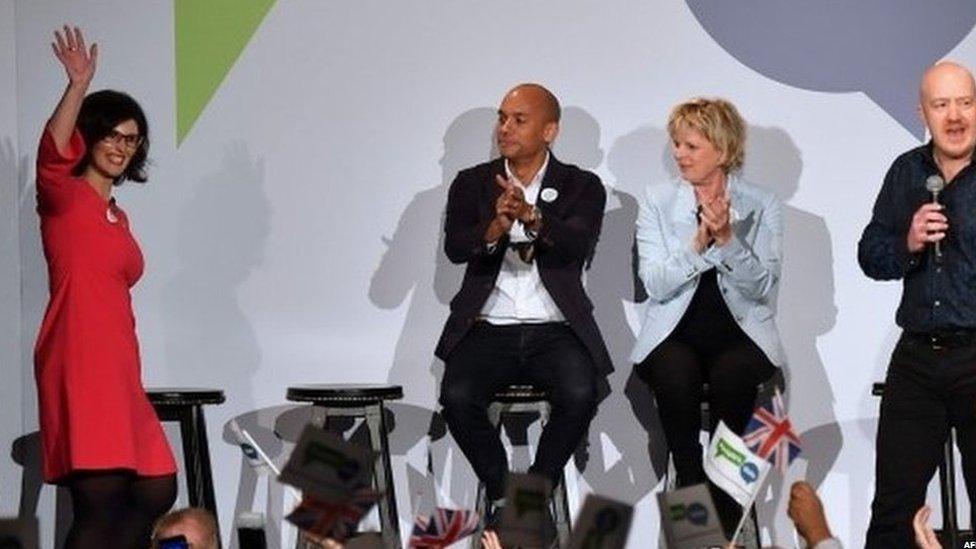Lib Dems: Cable plays down talk of local election gains
- Published
- comments
Vince Cable: The recovery "won't happen overnight"
Sir Vince Cable has cautioned Lib Dems against expecting to make "spectacular progress" in English local elections.
The party hopes to make gains on the back of its opposition to Brexit and support for a referendum on the final EU deal secured by the government.
It aims to win back councils it lost in 2014 when it was in coalition with the Tories at Westminster.
The Lib Dems are defending 462 seats in Thursday's elections - the last before Britain is due to leave the EU.
It hopes to retain control of councils it already holds while possibly winning back Kingston-Upon-Thames and Richmond-upon-Thames in south-west London, which it lost to the Conservatives four years ago.
Sir Vince said it was a tough election for his party as they were defending very large majorities in places such as Eastleigh, Cheltenham and Sutton.
"I am expecting we will make progress in terms of seats, not spectacularly, but I am hoping we will make progress and perhaps one or two councils as well," he told the BBC's Daily Politics.
"We have had two difficult elections. Turning that around isn't straightforward but it is already happening. It won't happen in an overnight, spectacular way."

Layla Moran says Brexit is a local election issue in some parts of England but not others
His colleague Layla Moran, the party's education spokeswoman, said Sir Vince was right to "manage expectations" about likely headway, given Labour's campaigning strength in London.
"I think it is going to be very hard," she told Daily Politics.
"We have a very polarised politics which makes the centre ground a difficult place to be."

What elections are there on Thursday?
Voters go to the polls across England on 3 May for local elections with seats on about 150 unitary authorities, metropolitan, district and borough councils up for grabs.
In some councils, all the seats are being contested while, in others, a third of councillors are up for re-election. The majority of the seats being fought for were last elected in 2014.
Councils are responsible for a range of local services, including schools, parking, leisure facilities and recycling - which they fund through different sources, including council tax and government grants.
For a party to run a local authority, it needs to have a majority of councillors on it. Plenty of councils, including 23 councils being contested this time around, are under no overall control.
There are no local elections this year in Scotland, Wales or Northern Ireland.

The MP for Oxford West and Abingdon said the party had "moved on" from its time in government and it had to give people new reasons to support them based on individual councils' track records.
She said the "wildcard" in the election could be the turnout among nationals of other EU countries, three million of whom live in the UK. This will be the last election before Brexit in which they are allowed to vote.
The party wants the public to endorse or reject the deal negotiated by Theresa May in a referendum, a policy which critics say failed to cut through at the 2017 general election but Ms Moran insists did make a difference.
She told Daily Politics the party was, to a degree, tailoring its message on Brexit in different parts of England depending on the strength of feeling about remaining in the EU.
"Where there are areas which voted strongly to remain, it will be mentioned...but in other parts of the country we are not really talking about it because it does not really matter to them."